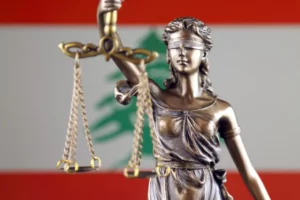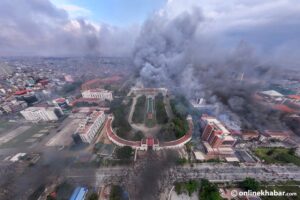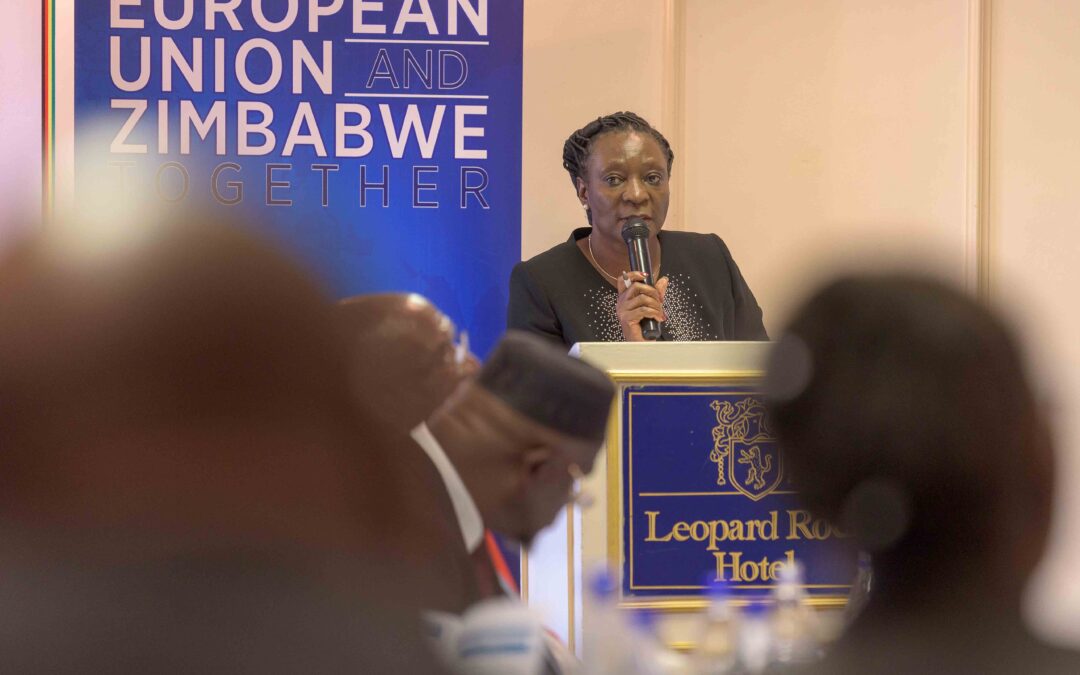
Sep 13, 2019 | News
The ICJ, in collaboration with the Judicial Service Commission (JSC) of the Republic of Zimbabwe, has concluded a two-day Judicial Symposium on the theme ‘Core-Skilling: Towards a Human Rights Jurisprudence’, organized to mark the end of the second judicial term in the Zimbabwe judicial calendar.
In his remarks at the opening of the symposium, ICJ’s Africa Regional Director, Mr Arnold Tsunga, noted that the theme of the symposium had been carefully chosen to enhance discourse on national transformation in an atmosphere of respect for the rule of law and international human rights. He noted further that the symposium was to critique the concept of transformative adjudication and explore its relevance to applying the Constitution of Zimbabwe as an instrument and framework for national transformation.
Noting that the ICJ appreciated its on-going partnership with the JSC in Zimbabwe, Mr Tsunga expressed the hope that the training and symposium would enhance the effectiveness of the judiciary with a view to improving access to justice for all, especially victims of human rights violations, women, marginalized and vulnerable groups and contributing to attainment of the United Nations Sustainable Development Goals number 16 and 5.
On his part, in his opening remarks the Chief Justice of the Republic of Zimbabwe, the Hon. Chief Justice Malaba, noted that the ICJ-JSC organized symposia have provided a platform for continuous improvement of judicial work and networking amongst judges.
Chief Justice Malaba observed that these meetings have enabled judges to dialogue on how to improve the effectiveness and efficiency in the justice delivery system. He noted that this year’s theme on human rights jurisprudence lies at the heart of an independent and effective judiciary.
He further noted that the current Constitution of Zimbabwe has a better framework and potential for the protection of human rights than previous constitutions. Accordingly, he expressed the view that the judiciary has a more important role to play in protecting and safeguarding human rights.
He highlighted that the judiciary’s commitment to the protection of human rights is evidenced in local jurisprudence in respect to human rights cases, where several important judgments have been given by all the courts.
Chief Justice Malaba used the opportunity to give updates on developments which were taking place within the JSC, particularly in its research centre, in the High Court, in the Fiscal and Tax Appeals Division, amendments to the Judicial Laws which were gazetted on the 9th of September 2019.
Chief Justice Malaba stated that in performance appraisal, the JSC has constituted a Performance and Training Committee led by the Deputy Chief Justice to come up with a system that enables accurate measurement of the performance of judges.
Responding to issues of accountability raised by the Chief Justice, ICJ’s Mr Tsunga urged the JSC to develop and adopt a system to track, monitor, document and communicate results arising from these trainings, as the results would help the ICJ, and international development partners to evaluate the usefulness of the trainings and efforts at justice sector reforms.
This year’s symposium was attended by 16 female and 27 male judges from the Constitutional Court, Supreme Court, High Court, Labour Court and Administrative Court of Zimbabwe.
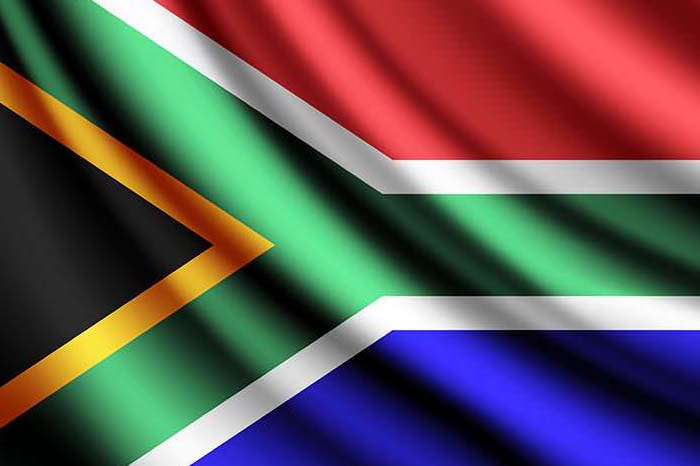
Sep 9, 2019 | News
The ICJ today called on the South African government to take immediate measures to prevent, investigate and bring to justice those responsible for all discriminatory violence that has occurred in the country, particularly against people based on nationality or national origin.
The authorities should make clear that the rights in the South African Constitution’s Bill of Rights and under international law apply to everyone in South Africa and to take demonstrable measures to protect everyone in South Africa from violence, including discriminatory violence, such as targeted xenophobic violence.
“The hard-fought rights in the Bill of Rights of our Constitution apply to everyone who lives in South Africa without exception. Whatever concerns people have must be resolved through listening and through dialogue. The prevailing violent attacks which seem to target people because they are not South African are cruel and inhuman. They can never be justified and must be condemned in the strongest terms possible”, said ICJ Commissioner Justice Yvonne Mokgoro, a former judge of the South African Constitutional Court.
The ICJ further called on the African Union Member States to take immediate measures to stop the retaliatory attacks against South Africans and South African groups and businesses in those countries where they have taken place, including the Democratic Republic of Congo and Nigeria.
“The current xenophobic attacks in South Africa targeting African immigrants as well as retaliatory violence against South Africans living in the affected African countries is highly regrettable. We call upon the leadership of the affected countries to exercise maximum restraint. We further urge them to take urgent measures to guarantee the security and rights of all immigrants and minorities within their borders, as they are duty bound to do so, under their constitutions and instruments against all forms of discrimination and xenophobia”, said ICJ Commissioner Justice Kathurima M’Inoti of the Kenyan High Court and Director of the Kenyan Judicial Education Institute.
The call by the ICJ comes after South Africa experienced a week of widespread looting and attacking of businesses, perceived to be owned by foreign nationals that saw at least 10 killings and many others injured and displaced from homes. The violence began in Jeppestown, a Johannesburg suburb, on Sunday evening and spread to other parts of Johannesburg including the Johannesburg CBD, Malvern, Tembisa, Alexandra and Katlehong.
The ICJ recalls that the African Charter on Human and Peoples Rights, the International Covenant on Civil and Political (ICCPR) and other universal and African regional human rights treaties to which South Africa is party, require that the rights be guaranteed equally to all persons without regard to citizenship or other status.
This is not the first time that South Africa has been gripped with xenophobic attacks. They have occurred periodically and with impunity over the past decade, with spikes in 2008 and in 2015. In 2008 more than 60 people were killed in a wave of violence against foreign nationals. Another significant flare of xenophobic violence also occurred in 2015 receiving widespread civil society condemnation and response though the perpetrators of such violence operated with some degree of impunity. Civil society will once again proceed with a mass protest on the 14th of September in strong opposition to the increasing climate of fear and xenophobia.
“Impunity for acts of violence, particularly xenophobic violence, is a matter of extreme concern. As a Zambian professor teaching at a leading university in South Africa, I am fearful of the lasting impact that continued xenophobia in South Africa has on the human rights of everyone especially non-nationals living in the country. These xenophobic attacks have the potential to destabilize the unity of Africa around human rights values and create a spiral of violence and impunity across the continent. Xenophobic violence is a threat to the observance of human rights on the continent.” said ICJ Commissioner and Professor Michelo Hansungule, of the Centre for Human Rights at the University of Pretoria.
A number of African countries, including Tanzania, Mozambique, Zambia and Nigeria have responded strongly to such xenophobia, including by suspending flights to South Africa and boycotting South African based events, illustrating the seriousness of the xenophobia. Though the South African government has previously presented such incidents to the world as isolated instances of naked criminality without discriminatory intent, in this instance South African Foreign Minister Naledi Pandor has said that “Afrophobia” can no longer be denied.
In responses to violence in South Africa, in Nigeria, protesters in Lagos and Abuja have targeted South African businesses, some hurling rocks and burning tyres outside their premises, with some explicitly indicating that the acts are retribution for violence against Nigerians in South Africa. In the Democratic Republic of the Congo, protesters also attacked and looted South African-owned businesses, some going on to attack the South African consulate in Lubumbashi. Read the full story here: South Africa-surge in xenophobia-news-webstory-2019-ENG
Contact Details:
Arnold Tsunga (Director): c: +26 37 7728 3249 e: arnold.tsunga(a)icj.org
Solomon Ebobrah (Senior Legal Adviser): c: +23 48 0349 27549 e: solomon.ebobrah(a)icj.org
Tim Fish Hodgson (Legal Adviser): c: +27 82 871 9905 e: timothy.hodgson(a)icj.org
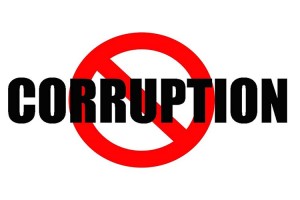
Aug 21, 2019 | News
The ICJ in collaboration with the Zimbabwe Anti-Corruption Commission (ZACC) and the National Prosecuting Authority (NPA), today launched a broad base anti-corruption awareness campaign in Harare.
The campaign was introduced by the President of Zimbabwe H.E. Cde Emmerson D. Mnangagwa and is expect to effectively run for 15 months.
It will harness different forms of media to spread awareness on the negative impact corruption has on the rule of law, human rights and development.
The anti-corruption awareness campaign is part of a broader longstanding rule of law initiative by the ICJ in collaboration with with stakeholders in the justice sector, to strengthen the rule of law for the protection and promotion of human rights for all, including women and persons from marginalized or disadvantaged groups.
Corruption undermines the rule of law by impeding access to justice through diversions of public resources for private gain.
As such the ICJ, through the support of the EU, is working towards increased transparency and integrity in the justice delivery system in order to increase access to justice for all.
“Zimbabwe has no option but to fight corruption if it is to be a just, peaceful and successful developmental state,” said Arnold Tsunga, ICJ’s Africa Regional Director.
“The reconstituted ZACC has demonstrated a strong desire to pursue its mandate with renewed commitment from other stakeholders in the justice delivery chain,” he added.
The campaign is not undertaken in isolation. It builds on other initiatives to combat corruption under this programme, which include the establishment of an anti-corruption court, training of personnel for the court and various research initiatives.
The campaign seeks to support the national efforts against corruption, and sensitize the public on the negative effects of corruption in society.
It will promote awareness on how to report corrupt practices, how to avoid corrupt practices and the impact of corruption on the public interest.
The campaign acknowledges that different sections of the population engage with media in varying manners. As such it utilises a wide array of approaches designed to build the optimism of the people of Zimbabwe to take an active role in efforts to combat corruption at every level of society.
The campaign launch was attended by justice sector actors, civil society representatives, business representatives and the diplomatic.
Contact:
Arnold Tsunga, Director of the Africa Regional Programme, International Commission of Jurists C: +263 77 728 3248, E: arnold.tsunga(a)icj.org
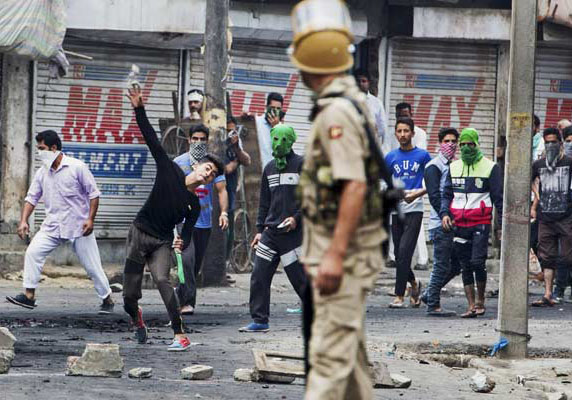
Aug 6, 2019 | News
The Indian Government’s revocation of the autonomy and special status of Jammu and Kashmir violates the rights of representation and participation guaranteed to the people of Jammu and Kashmir under the Indian Constitution and in international law and is a blow to the rule of law and human rights in the state and in India, the International Commission of Jurists (ICJ) said.
The Indian Government today pushed through a legislative package effectively eliminating the special status accorded to Jammu and Kashmir under Article 370 of the Indian Constitution, which granted autonomy to Jammu and Kashmir and limited the Indian Government’s legislative powers in the state. The move was preceded by a communication blackout, arbitrary detention of political leaders, banned movement and meetings of people, and increased military presence, purportedly to quell protests.
“The Indian Government has pushed through these changes in contravention of domestic and international standards with respect to the rights of people in Jammu and Kashmir to participate and be adequately represented, accompanied by draconian new restrictions on freedoms of expression, assembly, and travel, and with an influx of thousands of unaccountable security personnel,” said Sam Zarifi, ICJ’s Secretary General.
“The legality of the Indian Government’s measures to eviscerate Article 370 will certainly be tested before the Indian judiciary, which should look closely at the serious violations of proper legislative and Constitutional processes,” Zarifi said. “All eyes are now on the Indian Supreme Court to fulfill its functions in defense of the rights of people of Jammu and Kashmir and the Indian Constitution,” Zarifi said.
The procedure adopted to revoke the special status and autonomy of Jammu and Kashmir appears to be incompatible with judgments and observations of high courts and the Indian Supreme Court, who have clarified that the President of India would need the agreement of the government of Jammu and Kashmir to change its status. The amendments effectively render Article 370 inoperative in its entirety, without meeting the Constitutional requirements in spirit.
The revocation of special status of Jammu and Kashmir without agreement from the state government is contrary to the spirit of Article 370, which envisioned that the will of the people would be taken into account in decisions relating to state’s special status and autonomy.
“The Indian Government rushed through the amendments at a time when Jammu and Kashmir was under the direct rule of the Central Government, and the state legislature was dissolved. As the government of Jammu and Kashmir is not empowered to discharge its functions, it has not been consulted, let alone agreed to the revocation,” Zarifi said.
“The lack of consultation with the people of Kashmir is all the more troubling because the changes pushed by the Indian Government will materially affect Kashmir’s status as India’s only Muslim-majority state, including special rights for citizens of the state to own and hold land and seek education and employment,” Zarifi said.
The Office of the United Nations High Commissioner for Human Rights (OHCHR) in successive reports in 2018 and 2019 has noted that the region of Jammu and Kashmir, under dispute between India and Pakistan since 1947, has been the theatre of grave human rights violations, including unlawful killings, enforced disappearances and torture, committed with impunity by Indian security forces.
The UN High Commissioner for Human Rights in both reports recommended to the Indian Government to “fully respect the right of self-determination of the people of Kashmir as protected under international law”.
The ICJ condemns the legislative steps taken with respect to Jammu and Kashmir, and calls on the Indian Government to implement in full the UN High Commissioner’s recommendations, including respecting the right to self-determination of people of Jammu and Kashmir, and to respect, protect and fulfill the human rights of people in Jammu and Kashmir.
Contact
Sam Zarifi, ICJ Secretary General,e: sam.zarifi(a)icj.org, t: 41 (0)22 979 38 00
India-Jammu Kashmir and Autonomy-News-press release-2019-ENG (full story with additional information, in PDF)
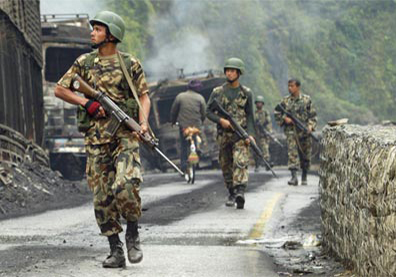
Jul 29, 2019 | News
The Government of Nepal has failed to fulfill its commitment to provide justice for the victims of the country’s decade-long armed conflict, the ICJ, Amnesty International, Human Rights Watch, and TRIAL International said today.
The organizations echoed statements by victims and human rights groups about the Nepal government’s inaction on addressing conflict-era human rights violations, and a lack of transparency in the appointment of commissioners to the Truth and Reconciliation Commission and to the Commission on the Investigation of Enforced Disappearances.
“The lack of progress in holding perpetrators accountable for the suffering inflicted upon victims, their families and Nepali society as a whole, is appalling,” said ICJ Asia-Pacific Director Frederick Rawski.
“Nearly 13 years after the signing of the Comprehensive Peace Agreement, political leaders inside and outside of government are still playing games by politicizing the process. It is about time that they showed some courage, and took action to ensure access to justice, instead of continually looking after their own short-term self-interests,” he added.
“We have seen no evidence so far that the authorities of Nepal are serious about fulfilling their obligation to investigate conflict-era violations and bring all those suspected of criminal responsibility to justice in fair trials before ordinary civilian courts,” said Raju Chapagai, South Asia researcher at Amnesty International. “If the commitment to human rights obligations was as unflinching as claimed by Prime Minister KP Sharma Oli, the government would have acted diligently to deliver on its transitional justice responsibilities.”
After being elected in 2018, Prime Minister Khadga Prasad Oli renewed promises that the legal framework governing the transitional justice process would be brought into conformity with Nepal’s international human rights law obligations, as the Supreme Court had repeatedly directed. However, the government never amended the law, and instead pushed forward – without adequate consultation – with the establishment of a committee to recommend appointments to the transitional justice bodies.
“The failure of the government to deliver on its commitment to ensure truth, justice and reparations for the victims of conflict-era abuses shows a dismaying disregard for the protection of human rights,” said Meenakshi Ganguly, South Asia Director at Human Rights Watch.
The organizations called on the government to: 1) suspend the current process, and initiate a consultative and transparent process for the nomination and appointment of commissioners; 2) follow through on commitments to amend the 2014 transitional justice law to ensure that the legal framework is consistent with international human rights standards and Supreme Court rulings; and 3) adopt and publicize a plan for taking the transitional justice process forward.
“The legitimacy of Nepal’s transitional justice process lies both on a transparent and consultative appointment process for commissioners, and a strong legal foundation to allow the commissions to fulfil their mandate,” said Helena Rodríguez-Bronchú, Head of TRIAL International’s Nepal program. “Societal consensus is crucial for both factors.”
Amnesty International, ICJ and TRIAL International had previously submitted their analysis of the draft transitional justice legislation circulated in 2018 and had made recommendations on ensuring compliance with international human rights law. Human Rights Watch had also alerted for reform of the transitional justice law before appointing the commissioners. In April 2019, United Nations experts also wrote a joint letter to the foreign minister reminding the government of its commitment to amend the law and calling for a transparent process for appointing new commissioners after the terms of the previous commissioners expired.
Contact
Frederick Rawski, ICJ Asia-Pacific Director, t: +66 644781121 ; e: frederick.rawski(a)icj.org,
Nepal-trans just-News-Press releases-2019-NEP (story in Nepali, PDF)






